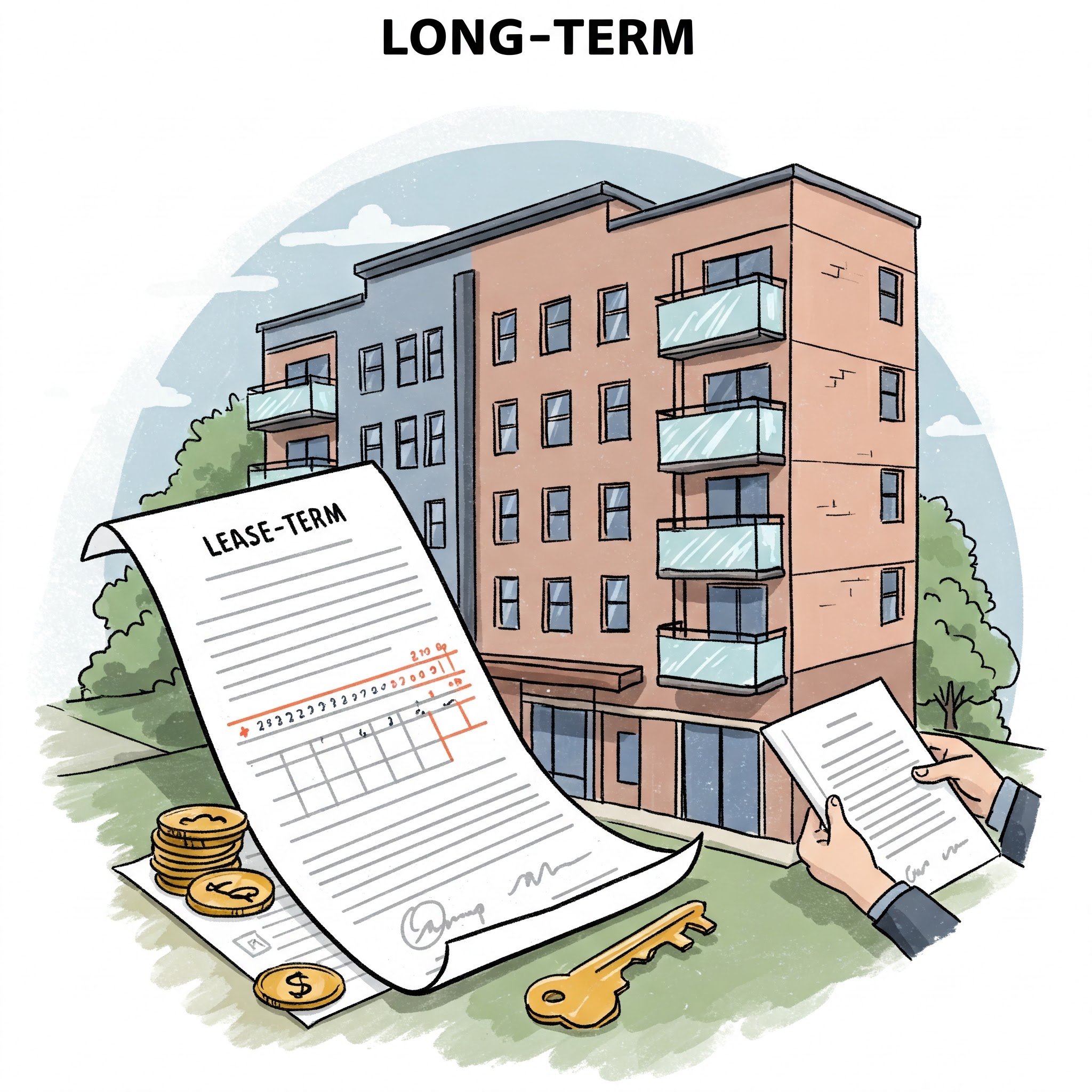Long-term
Definition
Long-term is an adjective and adverb that refers to something lasting, extending, or intended to last over a significant period of time. It is often used in contexts like planning, investments, and relationships.
Parts of Speech
- Adjective
- Adverb
Pronunciation
American English
- IPA Pronunciation: /ˈlɔːŋ.tɝːm/ or /ˈlɑːŋ.tɝːm/
- Respelling: lawng-TERM or lahng-TERM
British English
- IPA Pronunciation: /ˈlɒŋ.tɜːm/
- Respelling: long-TERM
Etymology
The term "long-term" originates from the combination of the words "long," meaning an extended duration, and "term," meaning a fixed or definite period. It gained widespread use in the 19th and 20th centuries, particularly in economic and strategic planning contexts.
Derivatives
- Long-termism (noun)
- Long-termist (adjective/noun)
- Long-termed (adjective)
- Long-termer (noun, informal)
- Long-termly (adverb, rare)
Synonyms
- Prolonged
- Extended
- Enduring
Antonyms
- Short-term
- Temporary
- Momentary
Usage
The term "long-term" is commonly used in financial, personal, and strategic contexts. Examples include "She made a long-term investment in real estate," and "The company is focusing on long-term goals."
Related Terms
- Duration: The length of time something lasts.
- Persistence: The ability to continue over a long time.
- Commitment: A dedication to a cause or activity for a long period.
Detailed Definitions
Adjective
- Lasting for a long period: Refers to something that extends over a significant amount of time.
- Example: "She has a long-term lease on her apartment."
- Relating to or involving extended timeframes: Often used in strategic or financial contexts.
- Example: "The project focuses on long-term sustainability."
Adverb
- Over a long period of time: Refers to actions or effects that last for an extended duration.
- Example: "Investing wisely pays off long-term."
long-term



🇨🇳 Mandarin
- 长期 (cháng qī) - long term
- IPA Pronunciation: /ʈʂʰɑ˧˥ tɕhi˥˥/
- Respelling in English: chang chi
🇮🇳 Hindi
- दीर्घकालिक (dīrghakālik) - long term
- IPA Pronunciation: /d̪iːrɣəkaːliːk/
- Respelling in English: deerghakaalik
🇪🇸 Spanish
- A largo plazo (a largo plazo) - long term
- IPA Pronunciation: /a ˈlaɾɣo ˈplaθo/
- Respelling in English: a largo plazo
🇫🇷 French
- À long terme (à long terme) - long term
- IPA Pronunciation: /a lɔ̃ tɛʁm/
- Respelling in English: a long terme
🇸🇦 Modern Standard Arabic
- طويل الأمد (tawil al'amd) - long term
- IPA Pronunciation: /tawiːl alʔamd/
- Respelling in English: tawil al'amd
🇧🇩 Bengali
- দীর্ঘমেয়াদী (dirghameyadi) - long term
- IPA Pronunciation: /d̪iːrɣomejad̪i/
- Respelling in English: dirghameyadi
🇷🇺 Russian
- Долгосрочный (Dolgosrochnyy) - long term
- IPA Pronunciation: /dɐlʲɡɐˈsrot͡ɕnɨj/
- Respelling in English: dolgosrochniy
🇵🇹 Portuguese
- Longo prazo (longo prazo) - long term
- IPA Pronunciation: /ˈlõɡu ˈpɾazu/
- Respelling in English: longo prazo
🇮🇩 Indonesian
- Jangka panjang (jangka panjang) - long term
- IPA Pronunciation: /jɑnkɑ pɑnjɑŋ/
- Respelling in English: janka panjang
🇩🇪 German
- Langfristig (langfristig) - long term
- IPA Pronunciation: /laŋˈfʁɪstɪç/
- Respelling in English: langfristich
🇯🇵 Japanese
- 長期的な (chōkitekina) - long term
- IPA Pronunciation: /t͡ɕoːkitekina/
- Respelling in English: cho-kiteki-na
🇻🇳 Vietnamese
- Dài hạn (dài hạn) - long term
- IPA Pronunciation: /zaːj haːn˧ˀ˨ʔ/
- Respelling in English: zai han
🇰🇷 Korean
- 장기적인 (jang-gi-jeog-in) - long term
- IPA Pronunciation: /dʑaŋɡid͡ʑʌɡin/
- Respelling in English: jang-gi-jeog-in
🇹🇷 Turkish
- Uzun vadeli (uzun vadeli) - long term
- IPA Pronunciation: /uzun vadeli/
- Respelling in English: uzun vadeli
🇵🇰 Urdu
- طویل مدتی (taveel muddati) - long term
- IPA Pronunciation: /t̪əviːl mʊd̪d̪ət̪i/
- Respelling in English: taveel muddati





